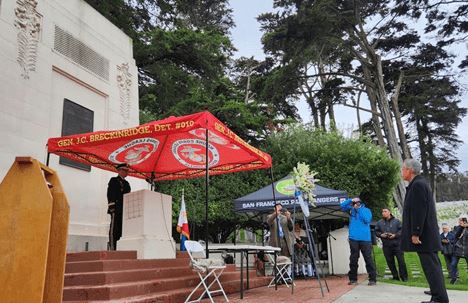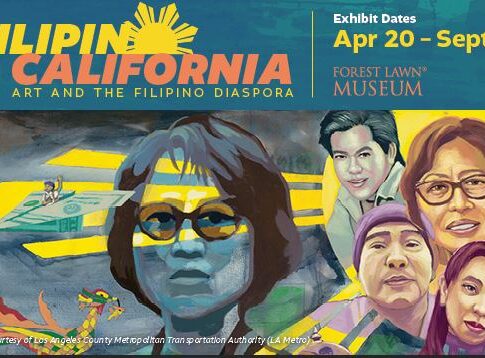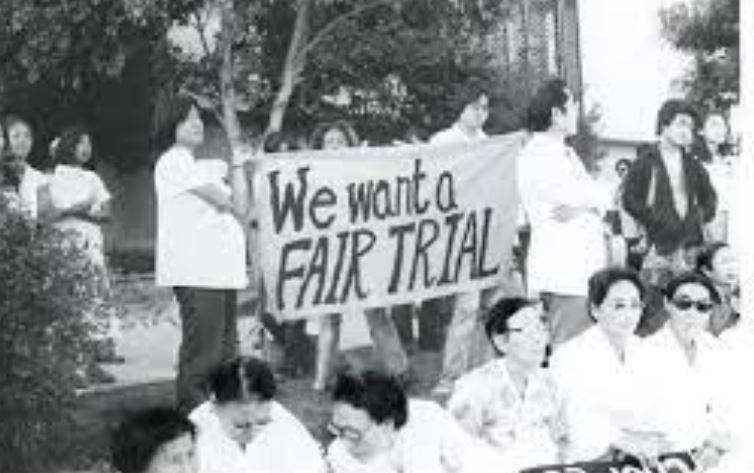By Jana Monji, AsAmNews Art & Culture Reporter
(Editor’s Note: Free Chol Soo Lee opens this year’s CAAMFest40 on Thursday, May 12. Free tickets are still available. AsAmNews originally published this review on Feb 19, 2022)
The documentary’s title is a bit deceptive. Free Chol Soo Lee isn’t a call to action for Lee. Lee died in 2014. He was 62. Yet this documentary is worth seeing because it is a part of Chinese and Korean American history. It is part of California history. It is part of Asian American history. And, most importantly, it is a call to preserve history before it disappears.
Last year, a documentary, The Six, showed how prejudice and time can easily erase history and leave twisted racist lies in the place of the truth. This year, Free Chol Soo Lee and The Exiles, two documentaries making their world premieres at Sundance reminded us that unless we act now, some things will be lost forever because the main narrative has been East Coast and Anglo-centric.
Chol Soo Lee was a child of war. His father was an American soldier; his mother, a Korean woman. He was born during the Korean War (1950-1953), in Seoul (15 August 1952) to a single mother. His mother’s family disowned her. Lee immigrated to San Francisco with his mother before he was 10, but she worked long hard hours. Lee could not communicate easily in English with his classmates and teachers. He acted out and ended up living in a series of foster homes. By 1967, he was in the California Youth Authority.
LATEST STORIES
In San Francisco 1973, he was, in his own words, “a young street punk.” He remembered, “I often felt like the lone Korean in Chinatown.” He hung out in bars and pool halls. He was in places frequented by Chinese gangs, but did not belong to one. He ended up in possession of a handgun, borrowed from the manager of the strip club where he worked as a barker. While cleaning it, the gun went off. This lead to an arrest and Lee being identified as a suspect in a murder.
That gun had been used in an execution-style killing of an alleged gang member. Yip Yee Zak, a grocer with possible ties to the War Ching gang, had been shot on the street in broad daylight on 3 June 1973.
The three White witnesses, tourists, identified him in a lineup. A police officer identified Lee as Chinese in an off-hand commentary on the stand. As you might expect, there were a lot of Chinese Americans in Chinatown. There had been locals, East Asian American passersby also on scene, but they were never questioned or called as witnesses. Lee was swiftly convicted and given life in prison by a Sacramento jury (19 June 1974).
The case had been transferred from San Francisco to Sacramento and that turned out to be a lucky break for Lee.
There was another Lee in Sacramento: Kyung Wong Lee. K.W. Lee, like Chol Soo Lee had been born in Korea (Kaesong) in 1928 during Japanese colonialism. After attending Korea University in South Korea, he immigrated to the US to study journalism at West Virginia University. He received a master’s degree from the University of Illinois in 1955. Lee had covered the civil rights movement in the South; he had worked in Tennessee and West Virginia. However, when Chol Soo Lee was on trial–this time for the prison murder of a fellow inmate, Morrison Needham, at Deuel Vocational Institution in Tracy, K.W. Lee was working for The Sacramento Union.
K.W. Lee contacted Chol Soo Lee on 22 November 1977 and went on to produce over 100 articles about Chol Soo Lee during a five-year period (archived at UC Davis). The first article appeared on 29 January 1978. These helped spark activists in the Korean American and Asian American community including a Free Chol Soo Lee Defense Committee. K.W. Lee would go on to found the Koreatown Weekly (1979-1982) and later establish the English Edition to the Korea Times in 1990.
Besides K.W. Lee, Ranko Yamada and Jeff Adachi were on the Free Chol Soo Lee Defense Committee.
Chol Soo Lee would be freed after the two murder cases were settled, accepting a plea bargain on 10 August 1983, but that wasn’t the end of the story.
The New York-born UC Berkeley graduate Wesley Strick (Arachnophobia, 1990 and Batman Returns, 1992) wrote a film inspired by Chol Soo Lee’s case: True Believer. And as one might expect, there was whitewashing involved (For a fuller examination of this visit my blog, AgeOfTheGeek.org) .
The documentary Free Chol Soo Lee” then follows Lee’s troubled last years. Upon his release, Chol Soo Lee was a minor celebrity, a leader of a cause, but the cause had ended. He received no monetary compensation for his time in prison and wrongful conviction from the state. He did get a job as a janitor, but having a job didn’t satisfy him. He continued to be on the wrong side of the law.
Chol Soo Lee would be arrested for narcotics offenses and arson. After the arson which left him terribly scarred, he became a public speaker. During his last decade, he remembered the Free Chol Sool Lee movement, saying he was touched by “the purity, the unselfishness, the integrity of people giving to a stranger.”
The documentary Free Chol Soo Lee gives voice to Lee by using archival video as well as using his own words in voiceovers by another Asian American who has spent some jail time: Sebastian Yoon. Yoon, who is also Korean American, was one of the inmates featured in Lynn Novick’s College Behind Bars documentary about the Bard Prison Initiative which allows inmates to earn college degrees.
First-tune directors Julie Ha and Eugene Yi do a good job, keeping the flow and organizing the chronology while giving us an objective view of the ill-fated Chol Soo Lee. During a panel, Ha stated, “We knew our film would have such import to the Asian American community” and that it was important that this history was known. Yi also noted that Asian American history “are so buried” and these “hidden histories” need to be brought out. There are “a lot of incredible stories that don’t get told.”
Multiculturalism has often been reduced to a dialogue between White versus Black. That’s not how the US was formed and founded. There have been API immigrants in North America from the very start. A Syrian immigrant, Nathan Badeen, died during the American Revolutionary War and an East Indian named Tony was recorded as part of Captain George Menefie’s household in 1624 in Jamestown.
This isn’t how history is taught in school. And even in contemporary times, when a Hollywood movie is inspired by an event, that doesn’t mean the story of Asian Americans and their activism is told. As in the case of True Believers, the role of a prominent Asian American journalist and minority activists was totally ignored in order to focus the narrative on two White male protagonists.
Yet the Asian American community was changed by Chol Soo Lee’s case and the movement that supported his exoneration. Adachi would go on to become a public defender and produce and direct films such as the 2006 The Slanted Screen and the 2009 You Don’t Know Jack: The Jack Soo Story before his death in 2019.
Then when the 1982 murder of Vincent Chin occurred in Detroit and the Detroit chapters of the American Civil Liberties Union and the National Lawyers Guild dismissed the application of civil rights laws for this case, Asian Americans were ready. The same year that Chol Soo Lee was freed after pleading guilty to the murder of the fellow inmates was the same year that the two men who murdered Vincent Chin, Ronald Ebens and his stepson Michael Nitz, were allowed to plea bargain down from second-degree murder with a penalty of three years of probation and a penalty of $3000.
Asian Americans formed a group, American Citizens for Justice, and Chinese American journalist Helen Zia (謝漢蘭) and Chinese American lawyer Liza Chan (陳綽薇) were among the prominent leaders in the Asian American response and the successful fight for federal charges.
Because history needs to be preserved and needs to be told, Free Chol Soo Lee is an important documentary for the Asian American community. It is an important record of the civil rights movement and California’s place in historic events. At a time when Asian Americans often feel under assault because of their forever foreigner status, Free Chol Soo Lee is a story that more people need to hear before we talk about racism in the US.
Free Chol Soo Lee premiered at the Sundance Film Festival on 21 January 2022. For my full review, visit AgeOfTheGeek.org.
AsAmNews has Asian America in its heart. We’re an all-volunteer effort of dedicated staff and interns. Check out our new Instagram account. Go to our Twitter feed and Facebook page for more content. Please consider interning, joining our staff, or submitting a story, or making a contribution.









